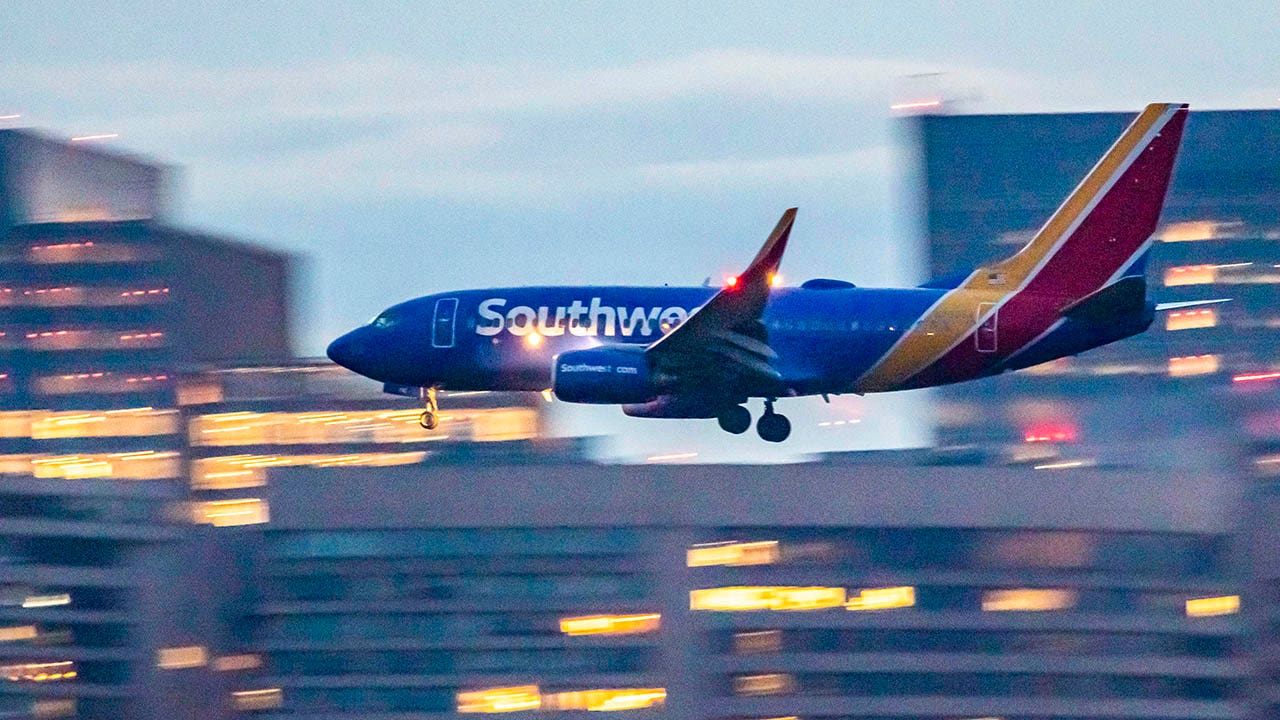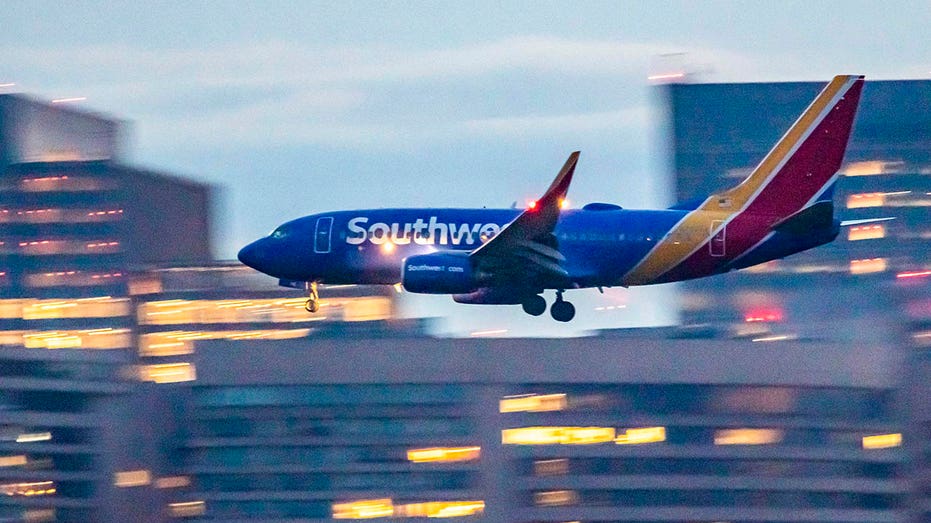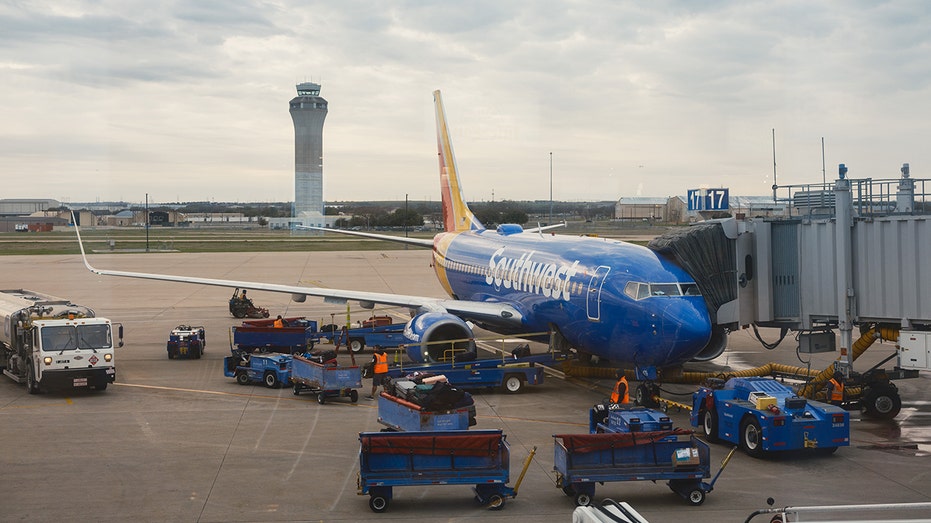
Aviation attorney and pilot Sal Lagonia discusses the travel troubles plaguing Southwest Airlines on ‘Cavuto: Coast to Coast.’
Southwest Airlines said that it may be hit with fines tied to last year’s widespread operational meltdown after the U.S. government determined it failed to properly support customers.
“The company could be subject to fines and/or penalties resulting from investigations by the Department of Transportation or other government agencies,” Southwest said Monday in a regulatory filing.
Nearly 17,000 flights were canceled between Dec. 21 and Dec. 29 after the carrier’s scheduling system was overwhelmed during a harsh winter storm. The incident left millions of passengers stranded across the nation during the critical travel period and resulted in lawsuits from passengers and shareholders. It also prompted an investigation by the Transportation Department shortly after.
SOUTHWEST AIRLINES EXEC OFFERS UP EXPLANATION FOR CHRISTMAS MELTDOWN

Nearly 17,000 flights were canceled between Dec. 21 and Dec. 29 last year after Southwest’s scheduling system was overwhelmed during a harsh winter storm. (Nicolas Economou/NurPhoto via Getty Images / Getty Images)
On Friday, the government determined that Southwest “failed to provide adequate customer service assistance, prompt flight status notifications, and proper and prompt refunds and that the assessment of a civil penalty is warranted,” according to the filing.
| Ticker | Security | Last | Change | Change % |
|---|---|---|---|---|
| LUV | SOUTHWEST AIRLINES CO. | 22.23 | -0.27 | -1.21% |
Southwest also disclosed that it could face “monetary damages or other costs” from lawsuits it is facing from customers and shareholders, but that it couldn’t determine the potential financial losses from such actions.
SOUTHWEST PROJECTS MORE LOSSES AHEAD DUE TO OPERATIONAL MELTDOWN
The Texas-based carrier already took a more than $1 billion hit from lost sales during the period and from the uptick in operational costs tied to reimbursements and refunds.

Southwest disclosed that it could face “monetary damages or other costs” from lawsuits it is facing from customers and shareholders due to last year’s widespread operational meltdown. (Jordan Vonderhaar/Bloomberg via Getty Images / Getty Images)
Southwest Airlines Chief Operating Officer Andrew Watterson blamed the incident on harsher-than-expected winter weather that slammed its Denver and Chicago Midway stations concurrently.
GET FOX BUSINESS ON THE GO BY CLICKING HERE
Watterson said the carrier didn’t have “enough resiliency” in its operation for the severe effect the winter event had and that its crew scheduling couldn’t keep up with the overwhelming volume of changes.







